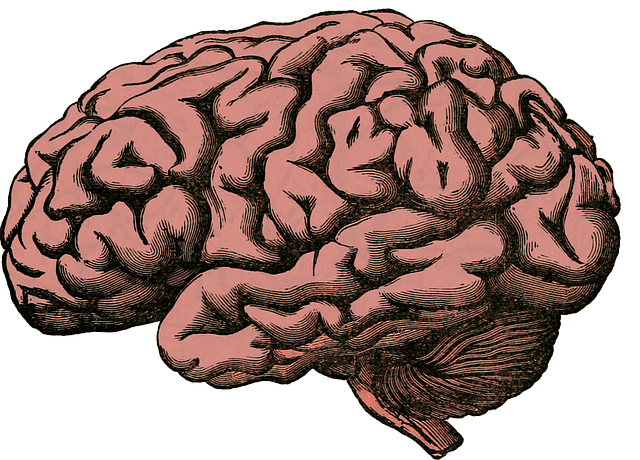Longmont Autism Spectrum Disorder (ASD) therapy emphasizes inclusive environments, personalized education, and evidence-based practices for effective mental health support. By dispelling myths, integrating diverse disorder knowledge, and promoting self-care routines like exercise and mindfulness, these programs cater to unique ASD needs. Techniques for anxiety relief and emotional regulation build resilience, with community outreach expanding access to tailored stress management techniques. This holistic approach, incorporating structured workshops and open dialogue, significantly improves overall well-being for individuals with Longmont ASD.
“Uncovering the secrets to effective mental health education program design, this article offers a comprehensive guide. We begin by establishing a robust foundation through an in-depth understanding of Mental Health, setting the stage for strategic program creation.
We then delve into tailored strategies for individuals with Autism Spectrum Disorder (ASD) in Longmont, addressing unique challenges and implementing successful interventions. By exploring evidence-based practices, this resource aims to enhance ASD therapy, providing valuable insights for educators and caregivers.”
- Understanding Mental Health: A Foundation for Effective Program Design
- Tailoring Programs for Autism Spectrum Disorder (ASD): Unique Considerations and Strategies
- Implementing Evidence-Based Practices: Enhancing Longmont ASD Therapy Through Education
Understanding Mental Health: A Foundation for Effective Program Design

Understanding mental health is a cornerstone when designing effective programs aimed at improving well-being, especially in populations like those with Longmont Autism Spectrum Disorder Therapy needs. It’s crucial to dispel myths and foster an inclusive environment where individuals feel comfortable discussing their experiences. This foundation involves educating about various conditions, recognizing symptoms, and promoting early intervention. By integrating knowledge of different mental health disorders, program designers can tailor activities that cater to diverse needs, ensuring inclusivity and accessibility.
Moreover, emphasizing self-care routine development within these programs is vital for long-term success in managing stress, anxiety, and improving emotional intelligence. Encouraging healthy habits like regular exercise, mindful practices, and effective coping strategies empowers individuals to take charge of their mental health. Incorporating techniques for anxiety relief and emotional regulation helps participants develop resilience, enabling them to navigate life’s challenges with greater ease.
Tailoring Programs for Autism Spectrum Disorder (ASD): Unique Considerations and Strategies

When designing mental health education programs for individuals with Autism Spectrum Disorder (ASD), it’s crucial to consider their unique needs and challenges, which often necessitate tailored interventions. Longmont Autism Spectrum Disorder Therapy focuses on creating inclusive environments that cater to diverse learning styles and sensory requirements. Strategies include visual aids, structured routines, and positive reinforcement, which can significantly enhance engagement and comprehension. By incorporating these approaches, programs can effectively address core aspects of ASD, such as social communication and interaction, while promoting emotional well-being.
Community outreach plays a vital role in expanding access to mental health support for individuals with ASD. Well-designed programs integrate practical coping strategies and stress management techniques suitable for various life settings. For instance, teaching mindfulness practices can help alleviate anxiety, a prevalent concern among those on the spectrum. Through community partnerships, these programs can reach wider audiences, fostering an environment where emotional expression and support networks thrive. This holistic approach, combining tailored interventions and community engagement, contributes to improving overall mental health and quality of life for individuals with ASD.
Implementing Evidence-Based Practices: Enhancing Longmont ASD Therapy Through Education

Implementing Evidence-Based Practices is a key strategy to enhance Longmont Autism Spectrum Disorder (ASD) therapy outcomes. By incorporating research-backed methods, such as those learned through Crisis Intervention Guidance and Mood Management workshops, therapists can provide more effective support for individuals on the spectrum. These practices offer valuable tools for navigating emotional challenges and promoting positive coping strategies, ultimately improving overall well-being.
The organization of structured Stress Management Workshops plays a significant role in this process. Such workshops not only educate participants about stress recognition and reduction techniques but also foster community among attendees. This collaborative learning environment encourages open dialogue, sharing of experiences, and the development of personalized strategies for managing stress, which is particularly beneficial for individuals with ASD who may face unique social and emotional challenges.
Mental health education programs, especially those tailored for individuals with Autism Spectrum Disorder (ASD), require a comprehensive approach. By understanding the foundational concepts of mental health and incorporating evidence-based practices, as highlighted in the discussion on Longmont Autism Spectrum Disorder Therapy, we can design impactful interventions. The strategies outlined, including unique considerations for ASD, offer a roadmap to enhance support and improve outcomes for those navigating mental health challenges.









